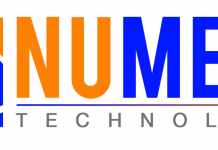ConsenSys, an Ethereum-focused venture production studio, yesterday unveiled a platform called Regis, which makes it easy to build, deploy, and manage decentralized registries on the Ethereum blockchain. Regis permits users to design and maintain user-defined key-value pairs without costly infrastructure requirements and record data on an immutable blockchain.
Daniel Novy, Blockchain Specialist at ConsenSys, explains:
With a very easy to use web interface, users don’t need to understand how to code smart contracts in order to to build and deploy their registries. Regis has a real-time smart contract builder that displays the registry code as it is created. Users choose among a rich set of parameters (registration fees, reward for early adopters, etc.) and can attach behaviors (like auction on the keys) to the registries they are building.
Some of the likely use cases for Regis include auctions, updating contracts, and registries for land or natural resources.
The possibility of building registries with an auction functionality is an important feature of Regis. Auctions are a popular tool in many existing registries, with the most well known example being Domain Name Systems (DNS).
Another example is in the case of smart contracts. While contracts on the blockchain is immutable and cannot be modified, there may be a need for an updated version of a contract to be used, particularly if the old contract has a bug. Smart contracts and other decentralized applications can be repaired with a registry instead of hardcoding contract addresses.
A very powerful, real world use case for Regis is a registry for particular natural resources. The first company to use Regis for building a decentralized registry is BVRio, a Brazilian organization that operates a digital market for timber trading. The timber markets operates much like a stock market, with real-time quotes and price charts. BVRio owns a proprietary scoring system that is based on the origin, transportation and legality of the timber. BVRio wanted to make this information available to any timber market customers and observers as the scores have a direct influence on timber’s price.
Novy adds:
Here is where Regis comes in: by creating a decentralized registry to keep timbers’ scores, producers now have traceability on their scores. They can make adjustments on the production or transportation side to check how this impacts their scores. The information is guaranteed to not change, given the immutability of blockchains, and it’s available publicly. And BVRio doesn’t need to maintain an infrastructure to keep the records or worry about server downtime, since the Ethereum blockchain has no single point of failure.
Regis is currently running on the Ethereum mainnet with ConsenSys encouraging usage and provision of feedback on the experience.











